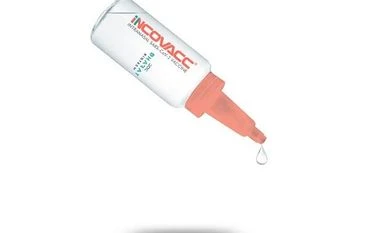The Union Ministry of Health (MoH) approved Bharat Biotech's Covid-19 nasal vaccine, Incovacc, for emergency use in India on Tuesday. Union health minister Mansukh Mandaviya announced the development on Twitter.
With this, India will no longer have to depend only on the intramuscular shots that were hitherto available.
But what are nasal vaccines?
There are several methods of administering a vaccine. The most common is the intramuscular vaccine, where the shot is delivered into the muscle. In subcutaneous vaccines, the shot is delivered between the skin and the muscles.
Vaccines may also be delivered orally, as in the case of Polio drops. However, in nasal vaccines, the shot is sprayed into the nostrils and inhaled.
Several viruses enter the human body through the mucosa. These tissues line the nose, mouth, lungs, and digestive tract. When it enters the body, the immune cells get activated and flock to the site of infection to stop its spread. In the case of nasal vaccines, the virus may be stopped from entering the body by attacking it at its point of entry.
How do vaccines work?
When a vaccine is administered to a human body, the B cells in the blood start churning out antibodies. The most important of these are called IgG antibodies. They search for the virus in the body and, with the help of T cells, destroy the infected cells.
How do nasal vaccines work?
B cells, however, also reside around the mucosal tissues. When a nasal vaccine is administered, they form another type of antibody, IgA. IgA with T cells destroys the pathogens in the airway only. Also, they memorise the pathogen and prevent it from entering the body ever again.
How is a nasal vaccine better than the usual ones?
There are three main reasons why nasal vaccines are better than intramuscular ones. First, these vaccines reduce the administration cost as they do not need syringes and needles. Second, Nasal vaccines can be easily self-administered. They do away with the dependence on trained individuals. Third, as the virus is not allowed to enter the body, the symptoms, if any, are mild.
How will Bharat Biotech's nasal vaccine be administered?
Bharat Biotech's Incovacc will have a two-dose schedule. The first dose would involve a total of 4 drops with 2 in each nostril. The second dose will have to be repeated within 28 days. This second dose would also involve a total of 4 drops, 2 in each nostril.
)